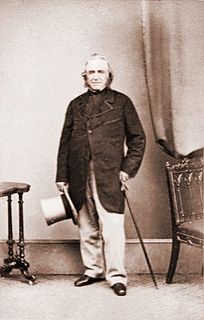A Quote by Alexander Hamilton
War, like most other things, is a science to be acquired and perfected by diligence, by perserverance, by time, and by practice.
Related Quotes
Science was blamed for all the horrors of World War I, just as it's blamed today for nuclear weapons and quite rightly. I mean World War I was a horrible war and it was mostly the fault of science, so that was in a way a very bad time for science, but on the other hand we were winning all these Nobel Prizes.
We profess to teach the principles and practice of medicine, or, in other words, the science and art of medicine. Science is knowledge reduced to principles; art is knowledge reduced to practice. The knowing and doing, however, are distinct. ... Your knowledge, therefore, is useless unless you cultivate the art of healing. Unfortunately, the scientific man very often has the least amount of art, and he is totally unsuccessful in practice; and, on the other hand, there may be much art based on an infinitesimal amount of knowledge, and yet it is sufficient to make its cultivator eminent.
We see many persons talking the most wonderfully fine things about charity and about equality and the rights of other people and all that, but it is only in theory. I was so fortunate as to find one who was able to carry theory into practice. He had the most wonderful faculty of carrying everything into practice which he thought was right.
The whole point of science is that most of it is uncertain. That's why science is exciting--because we don't know. Science is all about things we don't understand. The public, of course, imagines science is just a set of facts. But it's not. Science is a process of exploring, which is always partial. We explore, and we find out things that we understand. We find out things we thought we understood were wrong. That's how it makes progress.
If time be of all things the most precious, wasting time must be, as Poor Richard says, “the greatest prodigality'; since, as he elsewhere tells us, 'Lost time is never found again'; and 'What we call time enough always proves little enough'. Let us then up and be doing, and doing to the purpose; so by diligence shall we do more with less perplexity.
In New York, there's so much stuff going on all the time, and when I first moved here my productivity went down. I felt like I had certain social obligations. I found the more that I was like, "Don't listen to other music," or "Don't watch other things," and, "Don't go to other shows," for a specific time period, if I really need to complete something, that is the most helpful tool for me.
The history of science, like the history of all human ideas, is a history of irresponsible dreams, of obstinacy, and of error. But science is one of the very few human activities-perhaps the only one-in which errors are systematically criticized and fairly often, in time, corrected. This is why we can say that, in science, we often learn from our mistakes, and why we can speak clearly and sensibly about making progress there. In most other fields of human endeavour there is change, but rarely progress ... And in most fields we do not even know how to evaluate change.
































